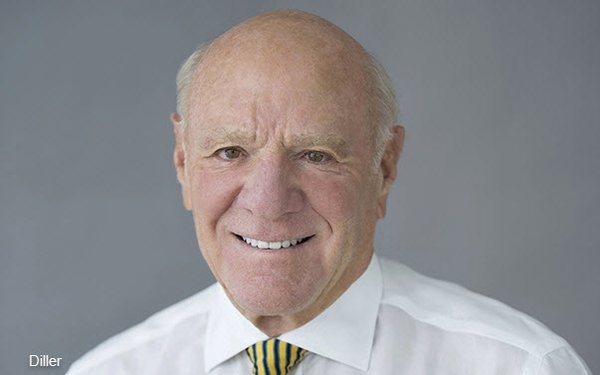
When it comes to numbers of subscribers, has
Netflix already won the streaming services war?
Barry Diller, chairman and senior executive of IAC/InterActiveCorp and Expedia Group, thinks so.
"I believe -- and I’ve said this
to my peril -- that no one’s going to compete with Netflix in terms of gross subscribers. I believe they have won the game," Diller said in an interview with CNBC yesterday (below) during the Allen & Co. Sun Valley Conference. "There's nothing I
can see that's going to dislodge them."
Diller said he disagrees with analysts who think that Netflix will begin to lose its large head-start advantage (150 million subscribers worldwide)
because it will lose subscribers as soon-to-be-competitors NBCUniversal and AT&T's WarnerMedia take away Netflix's streaming rights to top-viewed shows, such as "The
Office" and "Friends."
As for other potential competitive threats to Netflix, Diller said Amazon -- which along with Netflix has "totally upended" the six movie companies that once had
"hegemony" over the entire production/distribution business -- is "in a completely different business" than Netflix. Amazon is "selling Prime, which gives you all sorts of services, television among
them," he elaborated.
Disney "has the best chance" to compete with Netflix for subscribers "because of its very, very popular content and the money and the distribution and the Disney name
behind it," Diller continued. But while Disney may attract millions of subscribers, he said, he doesn't believe they'll ever catch up with Netflix.
However, he added: "I don’t
think it matters much" -- seeming to imply that subscriber numbers alone may not be the only determining factor in which players "win" the streaming wars.
“I don’t know
if you can say who is going to quote unquote ‘win’ this… this is a weird transformation," Diller noted. "You have an arms race that never existed before, and a complete
blurring of television and movies in the last couple of years. And you have these two new entrants [Netflix and Amazon] that have not only forced consolidation, but forced [the traditional players] to
make investments they’ve never...had to make before. You have Disney, which has mobilized itself like a superforce, wanting to compete in streaming; and AT&T reorganizing itself, buying Time
Warner, [so as to also] compete. So how many people are going to be at this table five, 10 years from now? I think it’s impossible to say."
Asked about what will happen to "smaller"
players like CBS, Viacom and Lionsgate, Diller said that, with so many companies eager to buy content, smaller players can likely succeed if they have the "talent and energy" to produce
strong content -- although they're unlikely to be able to "build a big empire."
More important, he said, "all of broadcasting is endangered, because what’s happening
with streaming and other services is that the only people who are watching commercials are people who can’t afford to buy the products that are being sold. That’s an existential, long-term
issue."
(Recent Comscore data cited in MediaPost's "Video
Insider," showing that those who pay for 0TT services tend to have much higher incomes than cordless and cord-never households, speak to Diller's point.)
Asked if Google and Facebook
should be regulated, Diller -- who owns several properties that compete with those platforms -- said he believes in "sensible" regulation when companies reach sizes that give them such market
influence they could obstruct the existence of a "fair playing field" for all competitors. He said he thinks regulation will happen, but doesn't think that the big tech platforms should be broken up
"unless it is proven that regulation doesn’t work."